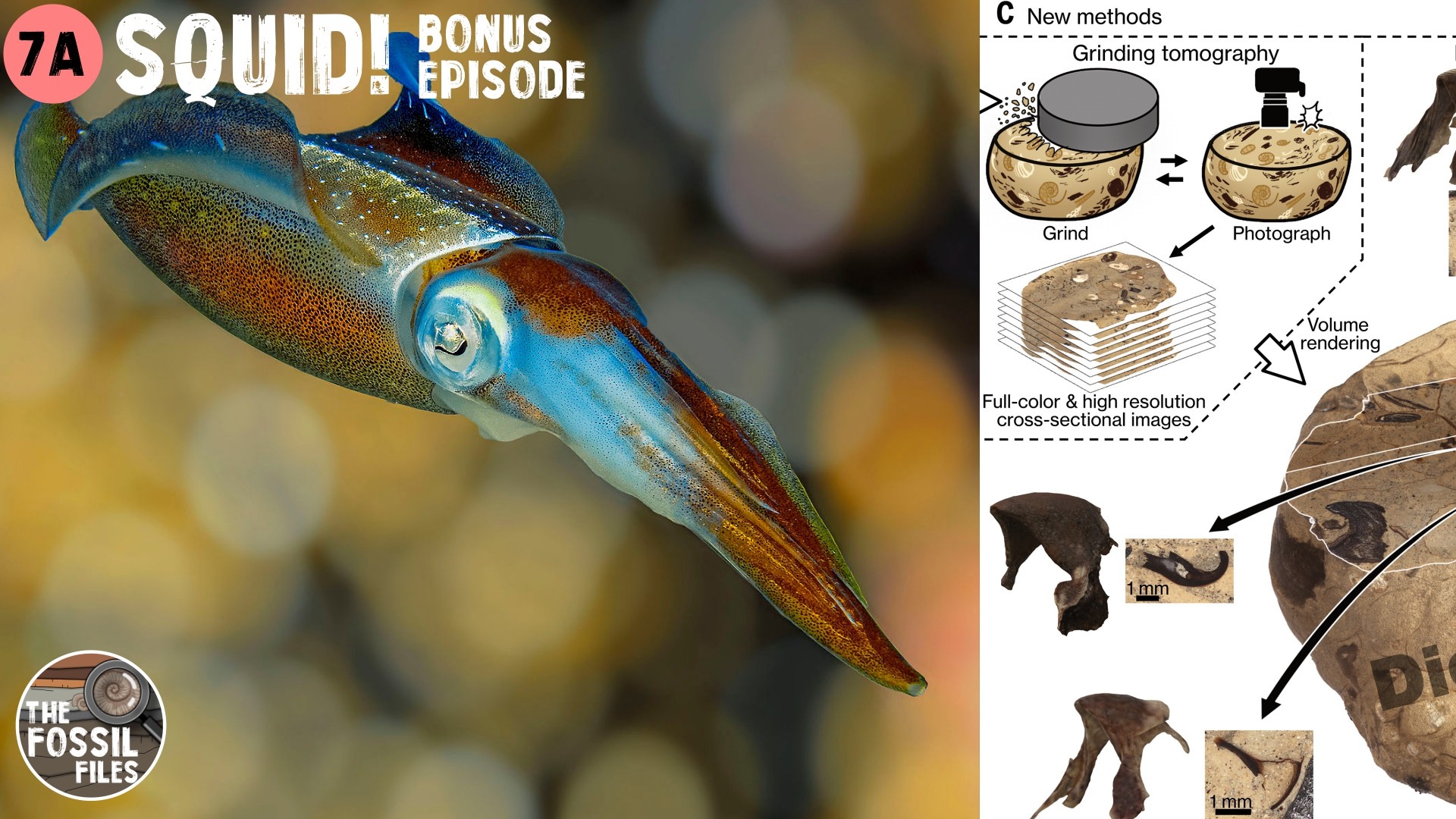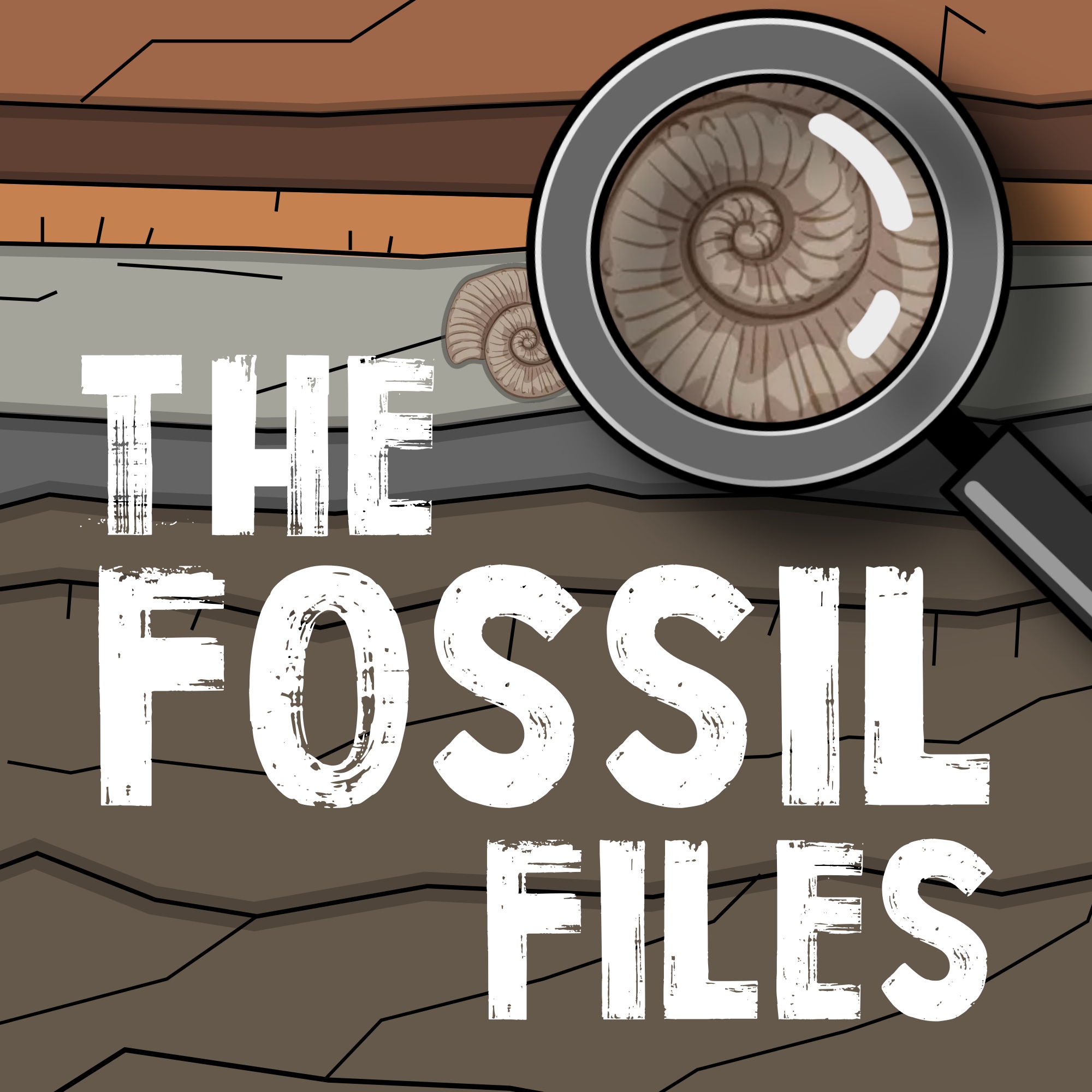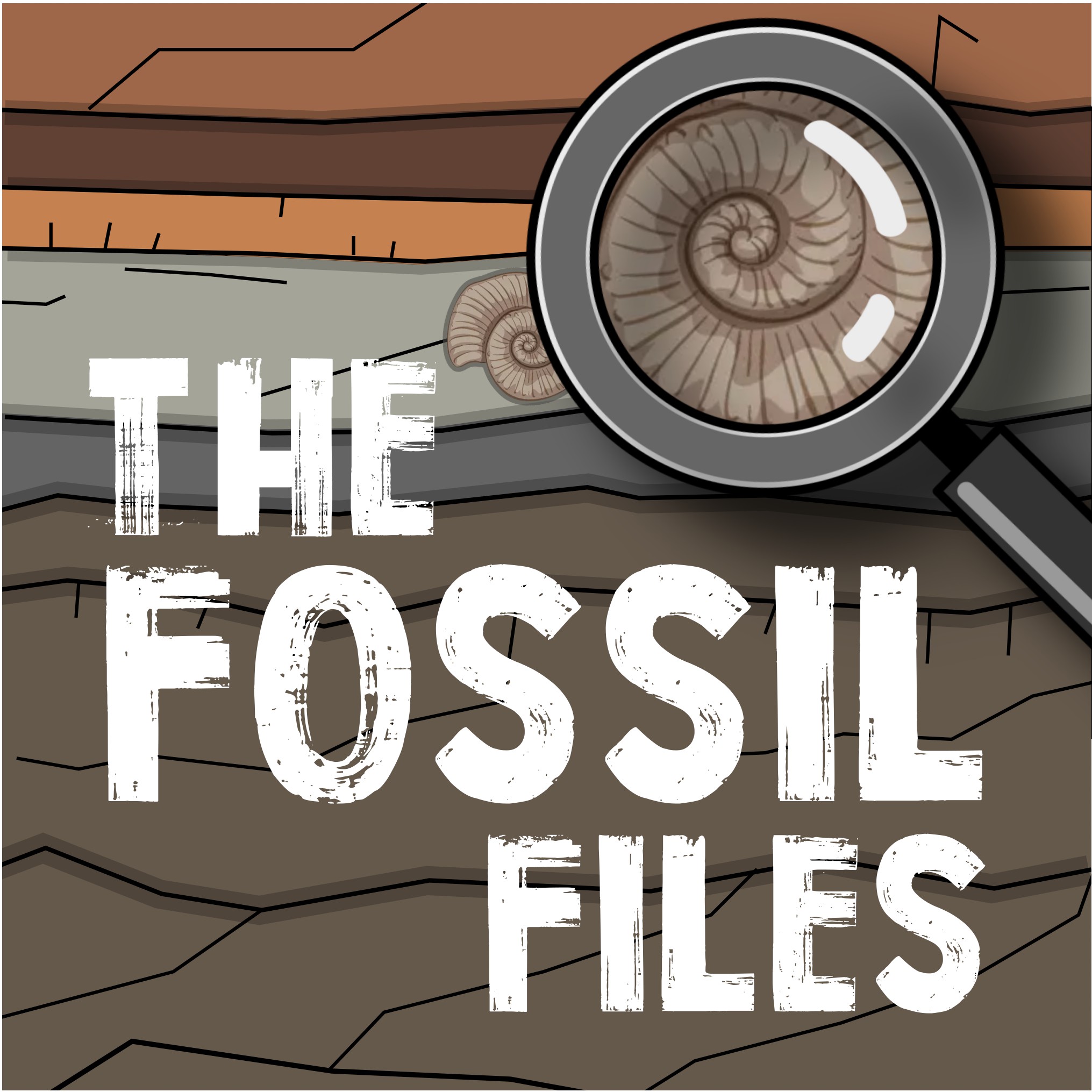Shows

The Fossil FilesSQUID! (bonus episode)Squid are a really important part of marine ecosystems, but their fossil record is close to non-existent - their squishy bodies are just really unlikely to be fossilised. In this short bonus episode we take a new look at the squid fossil record. 'Digital fossil mining' reveals a massive diversity of squid in Creataceous oceans. How did the scientists do it and what does this mean? The paper is "Origin and radiation of squids revealed by digital fossil-mining" by Shin Ikegami and colleagues of Hokkaido University, Japan. https://doi.org/10.1126/science.adu6248
2025-08-2512 min
The Fossil FilesOur deep origins and the vertebrate that wasn'tThe origin of our own group, the vertebrates, has received quite the shake up. One of the important fossil players has been found to be an invertebrate imposter, and this completely changes our understanding of this evolutionary episode. We take a look at why and when, and how this boils to down to a interesting question all about teeth. Did our entire skeleton come from teeth on the outside of our bodies, even before jaws existed? Is this why we now get tooth ache? The paper is "The origin of vertebrate teeth and evolution of sensory exoskeletons" b...
2025-08-1931 min
The Fossil FilesWhere did Pterosaurs come from?Pterosaurs dominated Mesozoic skies but it has always been a mystery where these flying reptiles came from. This week Susie and Rob discuss Pterosaur controveries and a cool new study that attempts to solve the problem of where and how they originated. How can you do this? By looking at the climate and locations of where pterosaurs lived and their closest relatives - the weird looking lagerpetids -, we can make predictions about how pterosaurs lived, thrived, and died. And maybe even where we should be looking for them... Figure 4 from paper shows the authors...
2025-08-0543 min
The Fossil FilesWere Neanderthals the first fossil collectors?Why do we collect fossils and who were the first fossil collectors? Cretaceious fossils have been found in a cave in Northern Spain alongside the Neanderthals that were living there 46,000 years ago. Were Neanderthals collecting fossils and if so why? This week Susie and Rob examine those claims and discuss fossil collecting and the recent surge in private trade in dinosaur fossils. Because we are children, we also giggle at possibly one of the earliest fossils collected, the Erfoud Manuport as well as the Makapansgat pebble. The paper is "Were Neanderthals the First Col...
2025-07-2240 min
The Fossil FilesWalking with… our Carboniferous ancestors in the rainOur evolutionary timeline just leapt back an additional 40 million years into the past. Some new fossil trackways from the early Carboniferous of Australia have been interpreted as the first bone-fide "amniotes". This is the group of egg laying vertebrates which we belong to along, with all the other mammals, birds, and reptiles. These fossils are much earlier than previously thought possible and potentially turns our understanding of this event on its head. We take a look at these fossils and the implications, in particular that there could be loads of missing things out there yet to be found, including...
2025-07-0934 min
The Fossil FilesIs de-extinction a scam?Can we bring extinct organisms back to life? Colossal Biosciences caused quite the stir earlier this year when claimed they could do just that, and indeed have done with Dire Wolves - an extinct species of candid from North America. What is going on here? We sense check those claims and ask what they did (and did not do) as well as the broader implications of the science (pseudoscience?) of de-extinction. The front cover of "Time" magazine - no ambiguity here about what they are saying. Here is the phylogeny (evolutionary t...
2025-07-0138 min
The Fossil FilesDinosaur poos from PolandHow did dinosaurs rise to supremacy? This difficult question is given "fresh" insights from new data from a motherload of fossils from Poland. Over 500 bromalites - fossil vomit, gut contents or poo - were analysed with new technology allowing reconstruction of how diets and ecosystems changed over this crucial time. We take a look at some of these fossils and interpretations and speculate about how to experimentally test these smelly findings. Figure 2: A selection of fossils found inside the bromalites (gut contents, vomit, and poos) from the paper. a - fish scales in a lungfish b...
2025-06-2432 min
The Fossil FilesHow does your plesiosaur swim?For our first paper, we look at some exceptional preservation of soft tissue in Jurassic plesiosaur (large marine reptiles). Detailed preservation of soft tissues to the sub-cellular level is very rare in the fossil record. We discuss this specific example from Germany (which we name Nigel) and the types of analyses that the authors did of its skin and tissues. This new data helps us reconstruct how plesiosaurs may have lived and moved. Or does it? In this figure from the paper we can see the whole fossil of Nigel (A), a close up of...
2025-06-1337 min
The Fossil FilesIntroducing the Fossil Files In “The Fossil Files”, a pair of palaeontologists delve into the latest discoveries from the world of palaeontology and seek to bring fossils to back to life. Each episode, Susie and Rob will discuss an interesting new research paper ranging from topics of what dinosaurs ate, how plesiosaurs swam, where we came from, and the science of de-extinction. Whilst doing so, we peek under the hood of how the science of palaeontology is done and how research gets to see the light of day. It is accessible to all those interested in palaeontology whether that is students, researchers themselves, or s...
2025-06-1304 min